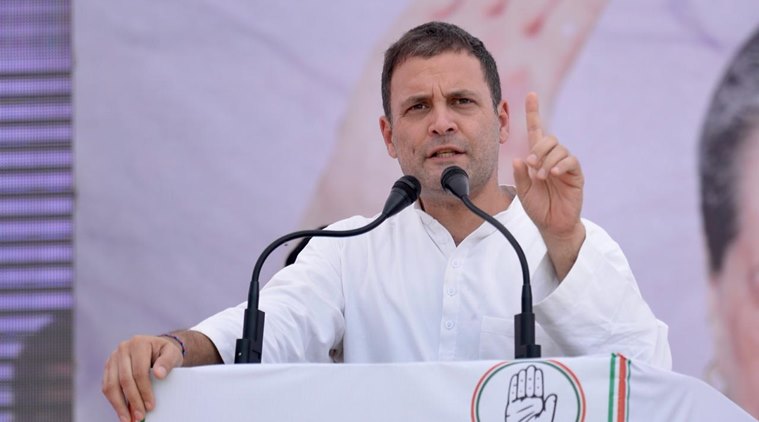 Rahul Gandhi (Source: Twitter/INCIndia)
Rahul Gandhi (Source: Twitter/INCIndia)
Congress president Rahul Gandhi on Tuesday alleged Prime Minister Narendra Modi was trying to “fix the mess his genius economic theories have created” by seeking Rs 3.6 lakh crore from the RBI. Gandhi was reacting to a report, first published in The Indian Express, which said that the Finance Ministry has sent a proposal to RBI seeking the transfer of a surplus of Rs 3.6 lakh crore, more than a third of the total Rs 9.59 lakh crore reserves of the central bank, to the government to recapitalise public sector banks (PSUs).
Gandhi also urged Reserve Bank Governor Urjit Patel to “stand up” to the Prime Minister and “protect the nation”.
“Rs 36,00,00,00,00,000. That’s how much the PM needs from the RBI to fix the mess his genius economic theories have created. Stand up to him Mr Patel. Protect the nation,” he tweeted and also posted the report.
Rs 36,00,00,00,00,000
That’s how much the PM needs from the RBI to fix the mess his genius economic theories have created.
Stand up to him Mr Patel. Protect the nation. https://t.co/6BI0ePFvvH
— Rahul Gandhi (@RahulGandhi) November 6, 2018
The Finance Ministry’s proposal was at the heart of the standoff between the RBI and the government. Sources have confirmed to The Indian Express that the RBI views this attempt by the government to dip into its reserves can adversely impact macro-economic stability. And so the RBI has not accepted the proposed changes, sources added.
However, the government is of the view that the RBI has over-estimated its capital reserves requirements resulting in an excess capital of Rs 3.6 lakh crore.
The Finance Ministry claims that the existing economic capital framework — which governs the RBI’s capital requirements and terms for the transfer of its reserves to the government — is based on a very “conservative” assessment of risk by the central bank.
The differences between the government and the central bank became public after RBI Deputy Governor Viral Acharya said the government should not interfere with the central bank’s autonomy. “The governments that do not respect central bank independence will sooner or later incur the wrath of financial markets,” he said. He had also said how a transfer of excess reserves from a central bank to the government can be “catastrophic” and may ignite “economic fire”.